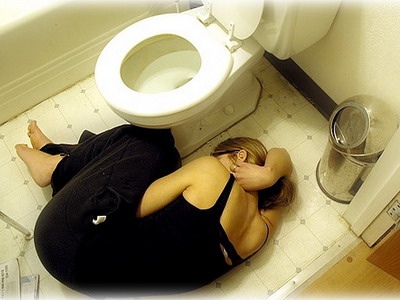Diarrhea
Diarrhea is a Greek word meaning “flowing through” and it is now called as “diarrhea”.

Diarrhea can be defined in many ways. 1. Frequent and unusual bowel movement with watery evacuations of fecal matter. 2. Decreased consistency resulting in frequent movement of bowel and watery stool.3. Increased bowel movement and decrease in the form of stool.4. It is just opposite to constipation in movement of bowel and nature of stool formation.
Normal frequency of evacuation may be three times a day and accepted average weight of fecal matter is 300 grams per day. The frequency more than 3 times and weights more than 300gms comes under the category of diarrhea.
In diarrhea the weight gain of the stool is obtained by the stool by having more parts of water. Diarrhea must be distinguished from hyper defecation. Diarrhea may arise either by infectious or non-infectious causes.
Diarrhea is classified based on the duration of the disease one is called acute form and it lasts for one or two weeks. Another one is called as chronic form and it lasts for more than two weeks to several months. Acute form is commonly caused by viral and bacterial infection.
Continuous and persistent diarrhea may be a disorder of underlying causes like infection. Or it may be an indication of failure of absorption to particular diet or food and the bowel is not able to absorb it.
Most forms of acute diarrhea are having only a limited discomfort. Treatment includes mainly with increase in water in take to avoid dehydration. This form however is not life-threatening. But studies show that acute form itself causes over five million deaths world wide per year. Most of the victims are children below the age of five. Earlier and fast diagnosis, prompt treatment can prevent and reduce this death rate especially in children.

Unlike acute form, the chronic diarrhea such as in irritable bowel syndrome, affects the health to the point of nutritional deficiencies and thereby diminished growth and immunity.
Certain other conditions that resemble diarrhea but they are not true diarrhea and it should not be wrongly diagnosed as diarrhea. For these conditions specific treatment should be given. They are:
- Incontinence of stool- inability to control bowel movement or evacuation as desired.
- Rectal urgency – sudden urgent need of bowel movement
- Incomplete evacuation- there is a need for sudden desire for second evacuation after the first one.
- Bowel movement immediately after any meal.
Though the frequency of bowel movement is not increased, the stool is looser in diarrhea. This loosened stool may vary from soft to watery by the increase of water content in it. The taken food inside the stomach is begun to digest and the food is kept at liquid form by the secretion of water inside the stomach and small intestine. The undigested liquid food reaches small intestine and colon where the water is absorbed. Hence the stool passing to large intestine is soft solid stool in its form.
Diarrhea is developed when the stomach and small intestine secretes more water or small intestine and colon fails to absorb water from the un-digested food or the food passes through small intestine and colon rapidly without allowing much time for absorption of water.


